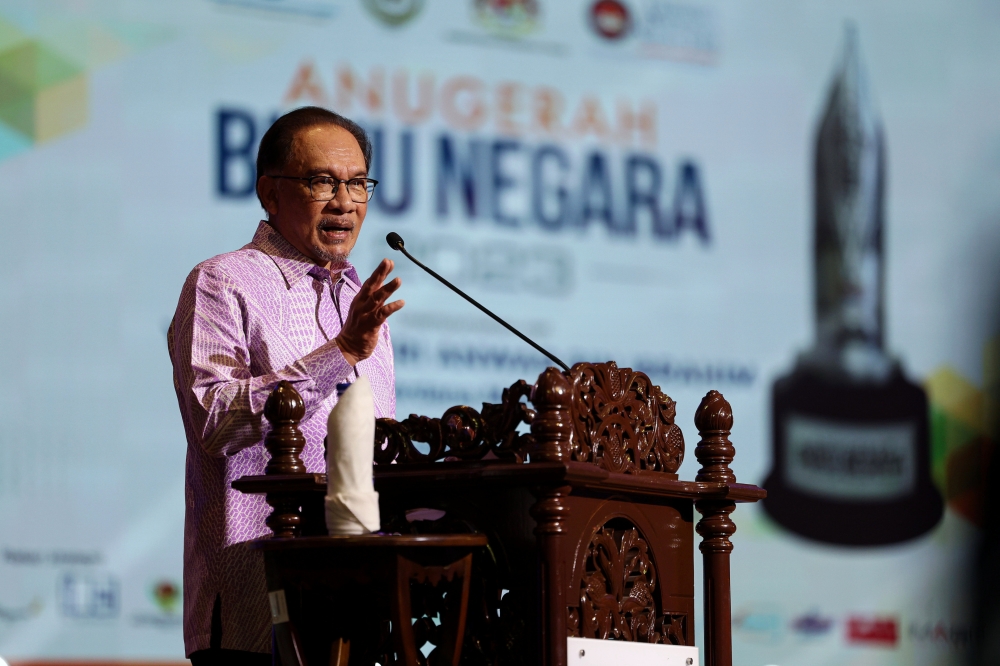DECEMBER 28 — As a teenager in the 1980s, a football stadium was not for the meek. Correction. As an ethnic Indian Malaysian teenager, a packed Stadium Merdeka intimidated. Not what transpired on the field but the expletives from the attendees. Occasionally, the word Keling is hurled at minority players, laden with profanities.
It’s fair to assume they were not trying to broaden understanding about Kalinga or the presence of the word in our literature.
Neither was comprehension or vocabulary the objective when my own history teacher used to refer to me as Keling in conversation with my classmate.
It worried me no end, thinking if it was appropriate my last column of 2023 surrounds what the prime minister said to a bunch of students at a campus. And then how he justified his use of Keling as fairly academic, informed and not malicious.
A year-ender should uplift and be celebratory, not about language politics and emphasis on political correctness at a time where people are too tired to tiptoe around words because they offend any number of people.
However, it is not the word use which piques my interest as much as how the prime minister clarified his position, and added if any took offence then he apologises to the offended.
In this regard, the prime minister could have done better. Much better.
It is a word, mate
It’s comedy gold when some defend widespread use of the word, on the basis it is a word and with valid origins.
Derogatory words are just words, arranged in a certain way and more pointedly, said in a way, to reduce, ridicule and undermine people.
Local Indians show casual racism too. They’d refer to the Chinese as braided hair and Malays as people of the land in Tamil. Neither sounds particularly deprecatory but it’s all in the inflexion. They are pejoratives. To cut people down to race. Friends know not to use them when I am around, if they intend to still be friends with me.
The words are here and they are valid. What is discussed is their use. To our specific discussion, does Keling being a word in the dictionary exempt it from being disparaging? To being hurtful to millions of Malaysian Indians?
Of course, it is not kosher just by being part of the lexicon.
The problem is not uniquely Malaysian.
The newer versions of Huckleberry Finn have heavily cut out the word nigger, for very obvious reasons. In 19th century America, Mark Twain wrote as a man who lived in his time and therefore used the word liberally, while American parents in this century cannot stomach their kids being exposed to the word.
It’s a bit of a pickle. To correct the past to match present dictates.
As are people who may ask in Malaysia Madani to amend the names of Melaka’s Tanjung Kling and Penang’s iconic Masjid Kapitan Keling.
The words do not have to disappear.
What should disappear is the hate in the hearts of people who use the words with every intention to insult Indians.
Banning words will not remove the hate.

They are all your children, PM
Anwar Ibrahim in the lead-up to the 2013 General Election, said all Malaysians were his kin.
Anak Melayu, anak saya, anak Cina anak saya (Malay kids, are my kids, Chinese kids, are my kids)... and on and on depending on the racial mix of the crowd.
It was a hit then, and still is today. Quoted by all and sundry. Back then, he took a hit when Malay nationalists felt it gave equivalency to all Malaysians. Which they disapprove of.
They belong to the other school of thought, the one Bersatu President and former prime minister Muhyiddin Yassin subscribes to, that Malays are Malays first. They object to Malaysia being a country of citizens before demography.
While as a person — and also former visiting professor at Georgetown — Anwar can explain his language. He did not use it in rage or part of a tirade. Hate was not present.
But he is prime minister and to those in the audience in Tanjung Malim, a father figure. Their leader.
He can access the context and the pain behind the broader use of the word in schools, fields and nightclubs, through the decades.
It was an opportunity for him to use the pulpit to explain why words can hurt, and why Malaysians should rise above pettiness. Universiti Pendidikan Sultan Idris is a teaching university. He was addressing future teachers, those in turn shape the next generation minds of Malaysia.
They did not need the prime minister to defend words in our literature, they needed him to explain more about how they can defend and advocate Malaysia in their future classrooms. A critical part of that discourse is how we treat each other, how we call each other in the worst of times.
That’s why it is an opportunity passed.
Malaysians have come a long way. Stadium crowds have tempered their language. There is more consideration today and at times we forget that. That we have in fact become better people with each other.
Anwar benefits from the country being more at ease with itself. His opponents have to seek wedge issues to force a race or religion impasse which translates to votes.
Those aggrieved by being called Keling are likely to vote for him. He might want to remember that the next time he speaks.
He can do one better than just benefit from a more multicultural Malaysia. He can lead us on it. On the path to multiculturalism.
* This is the personal opinion of the columnist.






















